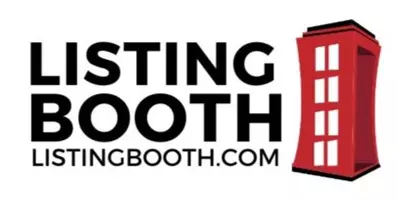Blog > Stay Safe in Ottawa's Housing Market

They say buying or selling a property is thrilling; it may prove quite complex and risky. Many such risks exist, particularly in cities like Ottawa, where active housing is constantly in motion, and real estate scams mostly happen. Most transactions go smoothly, yet it is essential to benchmark those possible threats that can strike even the savviest buyers and sellers. The blog will walk you through common real estate scams in Ottawa, helping you identify them and, most importantly, how to avoid real estate fraud to keep your transaction safe and secure.
Understanding the Scope of Real Estate Scams in Ottawa
Over the years, the real estate market of Ottawa has grown drastically, with multiple developments blooming, a wide range of properties to choose from, and large numbers rushing in, some seeking houses to buy and others wanting to sell homes. It offers a great real estate market to investors. But the boom has always brought its share of miscreants hunting healthy prey: unsuspecting buyers, sellers, and even burglars in agents' disguises. Whether you are a first-time homebuyer, an experienced investor, or simply selling your property, knowing about all the possible scams in Ottawa property fraud and their tactics is bound to be your first defense.
1. The Phantom Property Scam
One of the most recognized scams of the Ottawa real estate market is the "phantom property" scam. This scam usually involves a nonexistent or non-authorized property for sale. The intention is quite simple-it aims to catch you with a seemingly perfect listing at an unbelievably low price.
How does it work:
- Scam artists advertise their properties primarily online or via social media platforms like Facebook or Kijiji with unbelievably beautiful pictures. When potential customers reach out, they will almost always want them to remit the deposits and/or fees before any further action is taken, singling out why they need to close in on a deal rapidly. Most claim that "time is of the essence," making one feel like if you delay even a moment, someone else will swoop in to grab the property.
Avoid this scam by:
- Verify the authenticity of the listing by asking for the required documentation and visiting the property.
- Ensure the property is genuine in the can by using a licensed agent to complete the transaction.
- Never make any payments before verifying the seller's true identity and standing.
2. The Identity Theft Scam
Identity theft during property transactions remains another growing problem in the Ottawa housing market. The scammer poses as a legitimate buyer, seller, or agent, usually penetrating personal information to steal one's identity and carry out illegitimate transactions.
The scam works:
- Under this arrangement, an imposter achieves access to a person, maybe through email phishing, fake websites, or stolen papers, by using these illegally acquired personal details to impersonate during the sale or purchase of a property. The imposter may forge documents or imitate the buyer at closing to divert some funds into his account.
How to avoid this scam:
- Always communicate with your real estate agent, lawyer, or lender through secure, verified channels.
- Beware of unsolicited emails or telephone calls requesting sensitive information.
- Check your credit report and bank statements frequently for unusual happenings.
3. The Bait-and-Switch Rental Scam
Identity theft during property transactions remains another growing problem in the Ottawa housing market. The scammer poses as a legitimate buyer, seller, or agent, usually penetrating personal information to steal one's identity and carry out illegitimate transactions.
The scam works:
- Under this arrangement, an imposter achieves access to a person, maybe through email phishing, fake websites, or stolen papers, by using these illegally acquired personal details to impersonate during the sale or purchase of a property. The imposter may forge documents or imitate the buyer at closing to divert some funds into his account.
How to avoid this scam:
- Always communicate with your real estate agent, lawyer, or lender through secure, verified channels.
- Beware of unsolicited emails or telephone calls requesting sensitive information.
- Check your credit report and bank statements frequently for unusual happenings.
4. The Fake Mortgage Broker Scam
Much of the real estate in Ottawa is bought and sold using mortgages. So, in these scenarios, it is very important to be sure whether the lender is real. Many mortgage brokers can be very attractive to their customers by providing impressive loan terms for those who find it difficult to get loans.
This is how this works:
- A mortgage scammer obtains a bona fide loan above market interest rates or interest payment for a so-called loan from someone who usually promises not to make any queries about credit status. They may request some basic personal and financial details for the loan application and sometimes demand upfront payment as a condition. After submitting their identity and some required details, they disappear, leaving their host with a mysterious, empty bank account.
How to Outmaneuver the Scam:
- Validate the registration of every mortgage broker or lender by verifying their credentials and their reviews. Never pay up-front fees for a loan. Legit mortgage brokers do not ask for upfront payment; they are credible before processing your application.
- Work only with reputable, well-known institutions or licensed mortgage brokers.
5. The “We Buy Houses Fast” Scam
Buying houses quickly is a con that is rife in Ottawa for homeowners who are desperate to sell them because of monetary constraints and other personal reasons. Scams take advantage of these instant needs and sell the fastest and easiest house, ultimately taking advantage of the distressed seller.
How It Works:
- A scammer often pretends to be an investor seeking a good buy for cash, usually by offering homes usually below market prices. The fraud is completed by providing quick sales, no repairs or showings, and, upon agreement with a seller, creating absurd terms and conditions to bring down the quote or delay the deal.
How do you avoid this scam?
- Always contact a licensed agent when completing an agreement to sell your property.
- Get several offers from credible buyers and investors to be sure they are not undercutting your sale.
- If it sounds too good to be true, it probably is.
How to Protect Yourself From Real Estate Fraud in Ottawa
One of the basic steps that any person should take in defending themselves self from scams forged in the real estate industry of Ottawa pivots around these additional tips:
Always hire professionals: involve licensed real estate agents, attorneys, and other practitioners who can walk the line and help you identify any red flags.
Verify: Cross-check the listing, agent, or property before showing any interest. Do not rely solely on online listings.
- Do not rush decisions: Scammers often rush you to finalize a deal, making things spin so much that you make hasty decisions. Take time, do your research, and never feel rushed.
- Keep your payments within safe channels: Do not wire any amounts directly to a seller, let alone receive payments, without well-spotted documentation.
- Trust your instincts: If something feels off, walking away is better. Your gut will save you from a lot of scams.
Conclusion
Bearing in mind the reality that real estate scams affect buyers and sellers alike in Ottawa, here are the voices that ward off the vigilance required to counter victimization by fraud. Understanding the types of scams- Ottawa property fraud, identity theft, and "ghost" properties - and taking all necessary precautionary measures to vet authenticity in transactions will set you on the path toward a successful and protected real estate experience. If you want to buy your first home, sell a property, or invest in real estate, remain on guard, work with the right professionals, and remember: If it sounds too good to be true, it probably is.
By being well-informed and cautious, you can find a brilliant way to navigate Ottawa's real estate sector without falling into scams. So safe hunts, happy house hunting!

GET MORE INFORMATION

